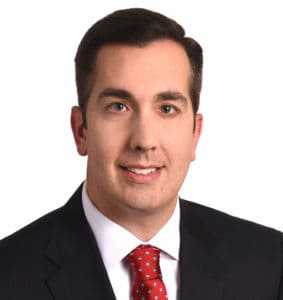
SBA Interim Final Rule Provides Clarity on PPP Loan Forgiveness Issues: What You Need to Know
Disclaimer: This information was correct at the time of publication; however, new guidance from government agencies may be issued at any time, causing some or all of this information to change. Please visit our COVID-19 Business Strategy Hub for the latest news and ensure you are subscribed here to receive email alerts as they are released. We are working diligently to provide the most current information as it becomes available under our COVID-19 Actionable Insights For Businesses Series.
Late on Friday, May 22, 2020, the Small Business Administration (SBA) issued new guidance related to the Paycheck Protection Program (PPP) loan forgiveness application forms and instructions that were issued on May 15, 2020. See our prior FAQ blog at this link: FAQ: Paycheck Protection Program Loan Forgiveness. The new guidance, Requirements – Loan Forgiveness and SBA Loan Review Procedures and Related Borrower and Lender Responsibilities, does not alter any of the calculations set forth in the previously issued loan forgiveness application but does provide clarity on a number of issues as follows:
- The new guidance makes it clear that “payroll costs” are to be defined broadly, and forgivable compensation is to include salaries, hourly pay, bonuses, hazard pay, commissions and any other like compensation. This makes sense given the intent of the PPP was to allow businesses to retain employees on their payrolls.
- The SBA has clarified that both “payroll costs” and “non-payroll costs” that are paid during the 8-week (56-day) covered period and also incurred during the 8-week (56-day) covered period will qualify for forgiveness. This means that eligible expenses paid during the covered period, even if not incurred during the covered period, are eligible for forgiveness if the payment of those expenses occurs as a result of standard and timely business payment cycles.
- In calculating your FTE and 25% salary/hourly wage forgiveness limitations, there should be no double-counting for a single employee. In other words, if an employee reduces your FTE count during the covered period, you will not need to apply the 25% salary/wage reduction limitation to that same employee.
- Employers will be required to report the names of those employees who were offered their jobs back but rejected the offer to their state unemployment agencies. Those employees will be denied unemployment benefits.
- The SBA clarified that your lender will have 60 days from the date you file your forgiveness application to make a determination, but the SBA has the right to review any forgiveness application and may take an additional 90 days for that review.
It is certain that more guidance will be forthcoming. There are bills in the House and the Senate that could extend the forgiveness period from 16 – 24 weeks. Additionally, Congress is considering eliminating the 75% payroll cost rule that requires PPP borrowers to spend at least 75% of the funds on payroll costs to qualify for full loan forgiveness.
If you need assistance completing your PPP loan forgiveness application and calculating your loan forgiveness amount, the Moore Colson team is available to help. To learn more, visit the COVID-19 Business Services section of our website or contact us. Also, be sure to subscribe here to get our news and alerts as they are released as we are committed to keeping you updated on how to navigate financial challenges associated with the COVID-19 pandemic.

Bert Mills, CPA, is the Managing Partner at Moore Colson. In his role, Bert sets the vision and mission of the Firm and works closely with the Firm's leadership to drive and implement strategies.

Chris Arnone, CPA, is a Partner and Business Assurance Practice Leader at Moore Colson. Chris has over 20 years of experience providing audit, accounting and consulting services for companies in the transportation, manufacturing, distribution, staffing, private equity and venture capital industries.

Andy Starnes, CPA, is a Partner and Tax Services Practice Leader Moore Colson. Andy’s specialties include corporate tax compliance and planning, business consulting and multi-generational planning with a focus on the construction, professional services and staffing industries.
